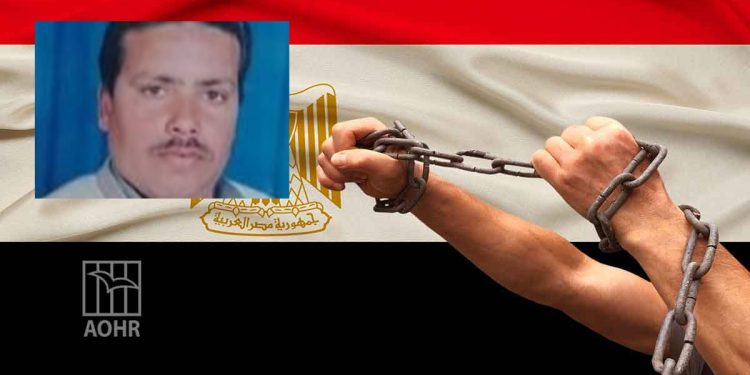Egyptian detainees and convicts continue to die in prisons due to ongoing violations of the Egyptian regime against them, most notably deliberate medical negligence and poor detention conditions.
Political detainee Hassan Ibrahim Ghamry, a former employee at the Ministry of Agriculture from Sharqia Governorate, died due to health deterioration caused by deliberate medical negligence and deprivation from treatment and medical care.
Ghamry had been suffering from hepatitis five years ago, and his illness worsened over the past years due to poor detention conditions and the lack of appropriate health care.
Borg El-Arab Prison Administration and the Prisons Authority rejected the repeated requests submitted by his family to treat him privately in a specialised hospital, which led to a sharp decline in his health, leading to complete failure in all of his body’s organs, so he was transferred to the hospital two months ago, where he passed away on Monday, August 19.
Despite the clear deterioration of his health; The authorities denied Ghamri visits while he was in the prison hospital, and his family was only able to see him for two minutes while he was on his sickbed.
Ghamri was arrested on October 27, 2015 in a political case, and in 2016, a criminal court issued a 10-year prison sentence against him. The sentence was later overturned, and he was added to another case, which led to his continued suffering and deterioration in his health until his death.
In addition to the family’s suffering from the loss of their breadwinner, the Egyptian authorities continue to detain three of his sons.
Ghamri’s death once again highlights the serious human rights situation in Egypt, where detainees and convicts suffer from appalling detention conditions and ongoing violations of their basic rights.
His death, due to deliberate medical negligence, is a clear indication of the Egyptian authorities’ failure to provide the necessary medical care to detainees, in a flagrant violation of international law and ethical standards.
This tragic event requires the efforts of human rights and international organisations to pressure the Egyptian government to assume full responsibility for protecting detainees and convicts, provide adequate medical care for them inside prisons, investigate incidents of death, bring those responsible to justice, and ensure that such incidents do not recur in the future.
It is worth noting that Egyptian prisons generally lack basic health requirements, including good food, sanitary facilities, and adequate toilets and showers for the number of prisoners, as well as good lighting and ventilation. Most detainees also suffer from severe overcrowding of prisoners inside detention facilities.






























